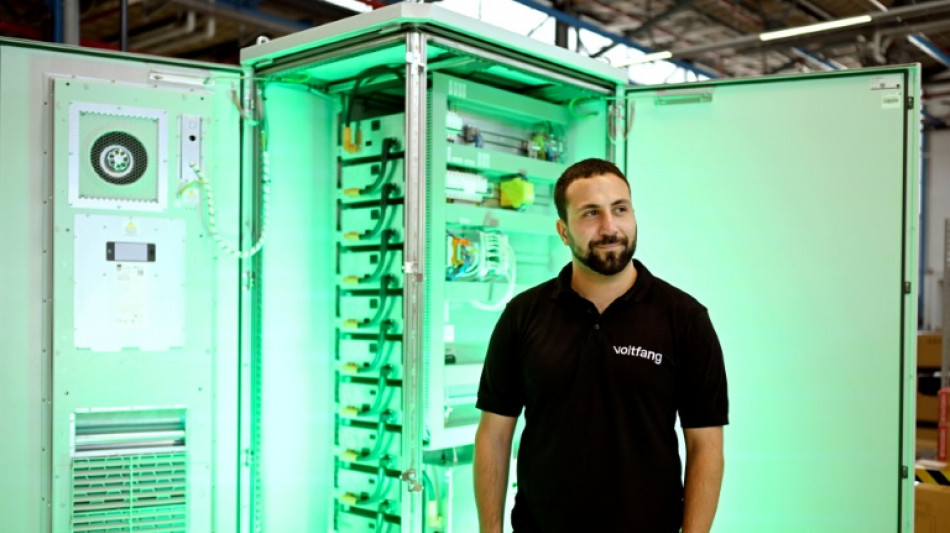
-
 FIFA to lead $75m Palestinian soccer rebuilding fund
FIFA to lead $75m Palestinian soccer rebuilding fund
-
Chicago Bears take key step in proposed Indiana stadium move

-
 Liu captures Olympic figure skating gold as US seal hockey glory
Liu captures Olympic figure skating gold as US seal hockey glory
-
North Korea opens key party congress

-
 Los Angeles sues Roblox over child exploitation claim
Los Angeles sues Roblox over child exploitation claim
-
Golden Liu puts US women back on top of Olympic women's figure skating

-
 Hodgkinson sets women's 800m world indoor record
Hodgkinson sets women's 800m world indoor record
-
USA's Alysa Liu wins Olympic women's figure skating gold

-
 Man Utd cruise into Women's Champions League quarters
Man Utd cruise into Women's Champions League quarters
-
Gu reaches Olympic halfpipe final after horror crash mars qualifiers

-
 Keller overtime strike gives USA Olympic women's ice hockey gold
Keller overtime strike gives USA Olympic women's ice hockey gold
-
NASA delivers harsh assessment of botched Boeing Starliner test flight

-
 US Fed Governor Miran scales back call for rate cuts this year
US Fed Governor Miran scales back call for rate cuts this year
-
Gu qualifies for Olympic halfpipe final marred by horror crash

-
 Trump issues Iran with ultimatum as US ramps up military presence
Trump issues Iran with ultimatum as US ramps up military presence
-
Peru's brand-new president under fire for child sex comments

-
 UK police hold ex-prince Andrew for hours in unprecedented blow
UK police hold ex-prince Andrew for hours in unprecedented blow
-
Former Olympic freeski halfpipe champion Sharpe crashes heavily

-
 Former Olympic champion Sharpe suffers heavy halfpipe crash
Former Olympic champion Sharpe suffers heavy halfpipe crash
-
Belarus says US failed to issue visas for 'Board of Peace' meeting

-
 Forest boss Pereira makes perfect start with Fenerbahce rout in Europa play-offs
Forest boss Pereira makes perfect start with Fenerbahce rout in Europa play-offs
-
Alcaraz fights back to book last four berth in Qatar

-
 England captain Itoje warns of 'corrosive' social media after abuse of Ireland's Edogbo
England captain Itoje warns of 'corrosive' social media after abuse of Ireland's Edogbo
-
War-weary Sudanese celebrate as Ramadan returns to Khartoum

-
 Townsend expects recalled Scotland duo to shine in Six Nations clash with Wales
Townsend expects recalled Scotland duo to shine in Six Nations clash with Wales
-
Peru's new president under fire for child sex comments
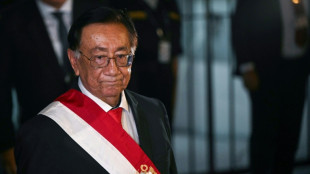
-
 UK king opens London fashion week despite brother's arrest
UK king opens London fashion week despite brother's arrest
-
Belarus frees opposition politician Statkevich
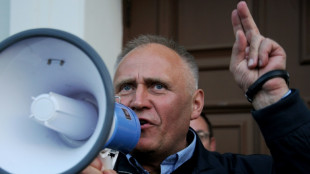
-
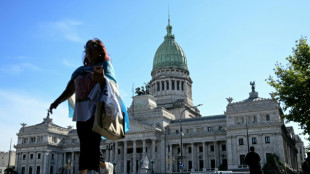 Striking Argentine workers slow down Buenos Aires in protest over labor reforms
Striking Argentine workers slow down Buenos Aires in protest over labor reforms
-
Starlink loss a blow to Russian forces in Ukraine: experts
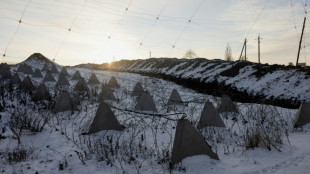
-
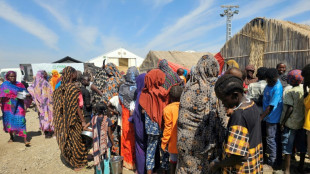 UN's Sudan probe finds 'hallmarks of genocide' in El-Fasher
UN's Sudan probe finds 'hallmarks of genocide' in El-Fasher
-
Belarus frees opposition politician Statkevich: wife
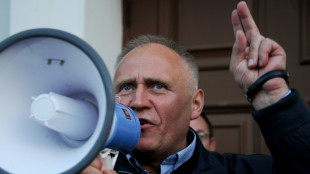
-
 Rocket re-entry pollution measured in atmosphere for first time
Rocket re-entry pollution measured in atmosphere for first time
-
Airbus ready to build two new European fighters if countries want

-
 Canada makes push to attract skilled migrants, including for defence
Canada makes push to attract skilled migrants, including for defence
-
US threatens to leave IEA if net zero focus remains
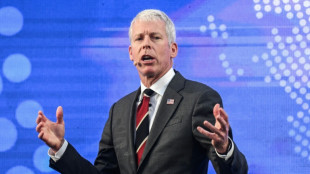
-
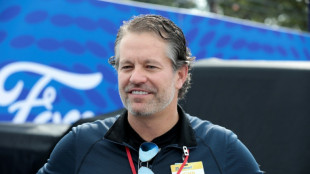 Walmart outlines big AI ambitions as it reports mixed results
Walmart outlines big AI ambitions as it reports mixed results
-
Trump kicks off his 'Board of Peace,' as war clouds loom on Iran
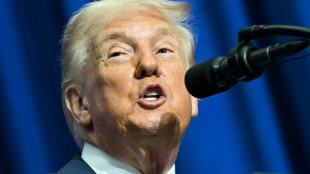
-
 UK pubs to stay open late if home nations reach World Cup knockouts
UK pubs to stay open late if home nations reach World Cup knockouts
-
TotalEnergies in high-stakes French trial over climate change

-
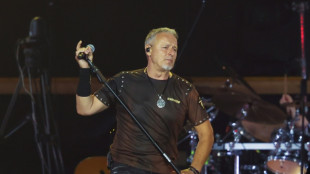 Bosnia probes fascist salutes at Croatian singer's concert
Bosnia probes fascist salutes at Croatian singer's concert
-
US and Israel issue dire warnings to Iran alongside US military buildup
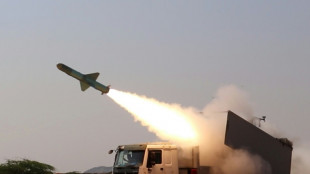
-
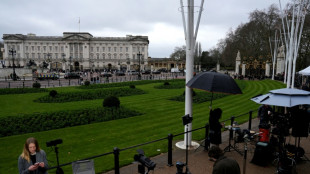 British public cheer Andrew's arrest with a smile and relief
British public cheer Andrew's arrest with a smile and relief
-
Argentine workers go on strike to protest Milei's labor reforms
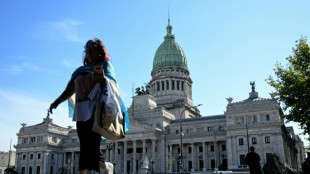
-
 Nakai targets Olympic skating upset as 'skimo' makes debut
Nakai targets Olympic skating upset as 'skimo' makes debut
-
What we know about ex-prince Andrew's friendship with Epstein
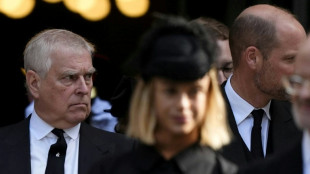
-
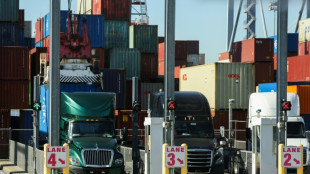 US trade deficit in goods widens to new record in 2025
US trade deficit in goods widens to new record in 2025
-
Oil extends gains on US-Iran tensions, stocks retreat

-
 Williams 'on the back foot' after missing Barcelona: Albon
Williams 'on the back foot' after missing Barcelona: Albon
-
Real Madrid submit evidence to UEFA in Vinicius racism probe


German firm gives 'second life' to used EV batteries
A German company is putting used electric vehicle batteries to new use by stacking them into fridge-size units that homes and businesses can use to store their excess solar and wind energy.
This week, the company Voltfang -- which means "catching volts" -- opened its first industrial site in Aachen, near the Belgian and Dutch borders.
With around 100 staff, Voltfang says it is the biggest facility of its kind in Europe in the budding sector of refurbishing lithium-ion batteries.
Its CEO David Oudsandji hopes it will help Europe's biggest economy ween itself off fossil fuels and increasingly rely on climate-friendly renewables.
While wind turbines now dot Germany's countryside and photovoltaic panels are found on many rooftops, he says the country still needs to build up battery storage capacity.
"We want to ensure European sovereignty in energy supply by enabling renewable energy production through storage," Oudsandji, 29, told AFP.
"We can generate enormous amounts of electricity from solar and wind energy, then store it in a decentralised way all across Germany and distribute it," he said.
"This means that the more renewable energy we use, the more storage capacity we deploy, the less we need fossil gas or oil."
Inside the site, technicians receive used EV batteries and test them to determine their remaining lifespans.
Those still found to be in good condition are reconditioned for their "second life" and fitted inside cabinets the size of large refrigerators -- effectively huge power banks for excess electricity.
Among the first customers is the discount supermarket chain Aldi Nord, which wants to store power from its rooftop solar panels for later use.
- Clean energy push -
Voltfang, founded in 2020 by three university engineering students, aims to produce enough systems by 2030 to store a capacity of one gigawatt-hour (GWh) of electricity per year, enough for 300 homes.
It is one of many small steps meant to help Germany's decades-old "Energiewende", or energy transition.
Last year, renewables covered nearly 60 percent of electricity produced in Germany, and the target is 80 percent by 2030.
One problem for solar and wind is what to do on days when the sun doesn't shine and the wind doesn't blow.
Such "dark lulls", most common in winter, have at times forced Germany to temporarily import power produced by French nuclear reactors or Polish coal plants.
To guarantee a secure supply, conservative Chancellor Friedrich Merz's government plans to build around 20 new gas-fired power plants by 2030.
The Greens and environmental groups have denounced this as a step backwards in German climate policy and fear the country will not meets its goal of carbon neutrality by 2045.
- Circular economy -
Europe's battery sector is still nascent but expected to grow fast.
"In our opinion, small-scale distributed energy assets such as battery storage will play a major role to create efficient energy systems," said Marc Sauthoff of the business consultancy Roland Berger.
The stationary storage market is growing exponentially in Germany: about six GWh of capacity were installed at end-2024, up from 2.5 GWh in 2022, he said.
Voltfang hopes to be profitable by next year, Oudsandji said, though he conceded there are hurdles.
For one thing, the supply of used EV batteries is still small, given that most vehicles have been on the road for only a few years.
Also, new batteries, produced mainly in China, are becoming more efficient and less expensive, making it harder to compete against them with refurbished models.
Oudsandji acknowledged that testing and refurbishing old batteries "is more complex" than simply buying new ones.
"But the big advantage is that it is more sustainable," he said. "It is cheaper and allows us to create a circular economy, thus ensuring Europe's independence in resource supply."
F.Schneider--AMWN


